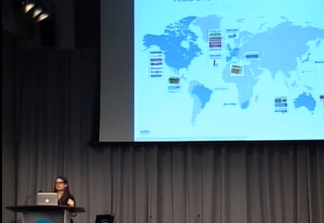Better Living Through Better Metadata

What's in a Name?
 Okay, we are data nerds. Data junkies, even, if you will. We spend time (a lot of time) looking at and thinking about how to make data more accessible, both for people and for machines.
Okay, we are data nerds. Data junkies, even, if you will. We spend time (a lot of time) looking at and thinking about how to make data more accessible, both for people and for machines.
Sometimes issues crop up in the data that are complicated and nuanced and take time to unravel to get the data flowing smoothly again. This isn’t one of those issues. This is an easy check that you can do on your own records that could make a big difference in making sure your data can be processed and retrieved correctly.
An Orderly Transition from ONIX 2.1 to ONIX 3.0
In my last post, I looked at what it means to implement ONIX 3.0, and came to the conclusion that it meant carrying enough “granularity” to improve metadata accuracy to support international sales. And I suggested that even ONIX files shared only within Canada will still need to implement new support in order to co-exist in a supply chain that supports international metadata. I hope that I also showed that ONIX 2.1 supports most of the same ability (even if ONIX 3.0 does it better), and that international support means everyone pulling up their meta-bootstraps.
What Does It Mean to Implement ONIX 3.0?
![]() It’s a vexing question. I like to explain ONIX for Books by separating out the standard (what you track as metadata) from the technical side (XML, which can be thankfully ignored in this post). ONIX as a standard is a way for two companies to exchange information about books without ambiguity by using published definitions. Using the standard involves those companies agreeing between them on what level of detail they need from the ONIX data fields to support their systems and sales.
It’s a vexing question. I like to explain ONIX for Books by separating out the standard (what you track as metadata) from the technical side (XML, which can be thankfully ignored in this post). ONIX as a standard is a way for two companies to exchange information about books without ambiguity by using published definitions. Using the standard involves those companies agreeing between them on what level of detail they need from the ONIX data fields to support their systems and sales.
Global Ebook Domination through Better Metadata
 Kobo’s Ashleigh Gardner gave an information-packed workshop at Technology Forum 2013 that covered some important tips and trends for selling ebooks internationally. In this video you’ll learn some pricing basics and how to ensure your ONIX records have all the information necessary to sell your books into as many territories as possible. And you’ll also get country-by-country pricing trends and tax structure tips that will help inform the decisions involved in selling your ebooks worldwide.
Kobo’s Ashleigh Gardner gave an information-packed workshop at Technology Forum 2013 that covered some important tips and trends for selling ebooks internationally. In this video you’ll learn some pricing basics and how to ensure your ONIX records have all the information necessary to sell your books into as many territories as possible. And you’ll also get country-by-country pricing trends and tax structure tips that will help inform the decisions involved in selling your ebooks worldwide.
Introducing BNC's BiblioShare Webform
How Can You Single Out E-Singles?
Metadata ROI, Standards and Best Practices, A Look from Canada
One for All? Should Different Markets or Retailers Get Different ONIX Files?
A lot of software vendors and some firms go to great lengths to prepare ONIX files tailored to markets, creating separate files by certification standards for BISG, BookNet, and BIC. And some ONIX senders tailor their output based on what a retailer requests.
At BookNet Canada, we think that so long as the ONIX file is a properly prepared XML document it shouldn’t matter. Here’s why.


